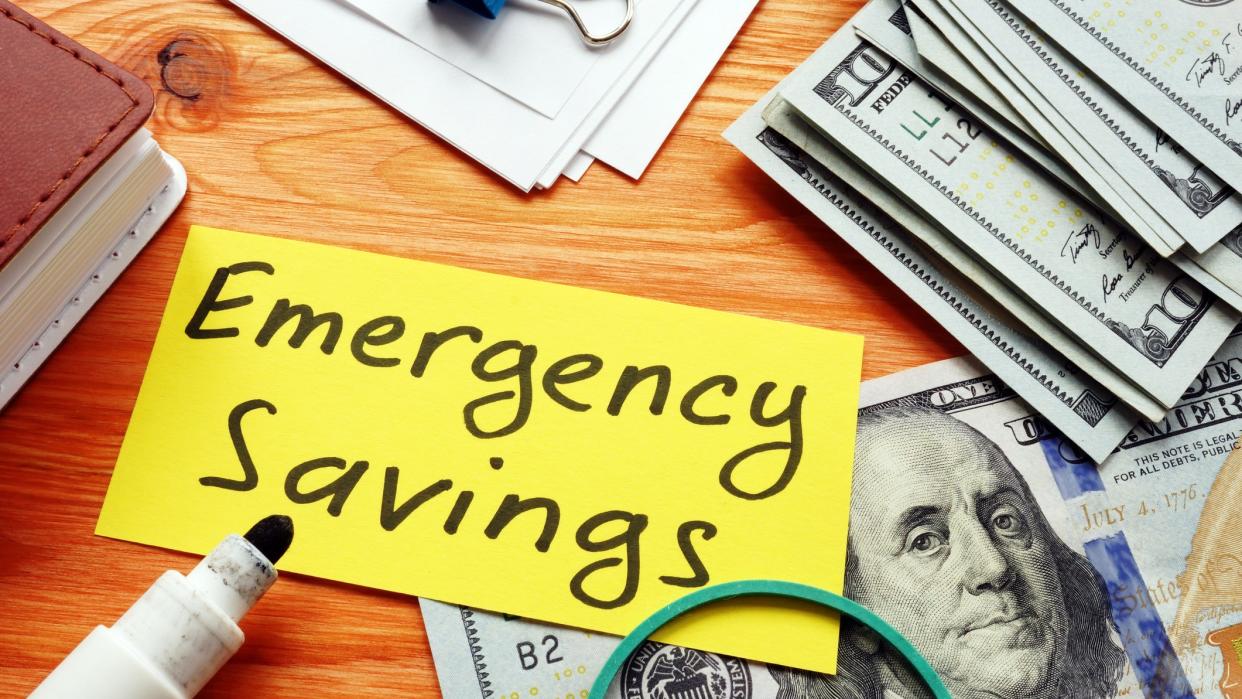Expert Advice on How To Reset Your Finances in 2021

2020 was a financial gut check for many Americans. Thanks to the coronavirus pandemic, businesses across the country were forced to trim staff and reduce hours, and some had to close their doors for good. Workers suffered as well, as many lost their jobs while others had to work fewer hours, often from home. Coupled with a crashing stock market early in the year, many workers had to resort to raiding retirement accounts, cashing unemployment checks or emptying emergency funds.
Read More: What Experts Say 2021 Will Look Like for Your Wallet
Now that the calendar has turned to 2021, it’s a good time to reset your finances. The widespread distribution of various vaccines, the promise of an economic recovery, additional stimulus packages and a “return to normalcy” mean that 2021 could be a much better year financially for many American households. To prepare for this, it’s a good idea to get your financial affairs in order to maximize your potential benefits going forward. Here are a few ideas to get you started.
Last updated: Jan. 20, 2021

Set Small Goals
The beginning of the year is a great time to look over your calendar and schedule financial goals throughout the year. For example, you might commit to saving X amount of money by March, June, September and December. Write it down on your calendar or somewhere that you regularly look at so that you’re constantly reminded of your financial goals.
“The key is, don’t set huge goals,” said Thomas Henske, a certified financial planner and partner at New York-based Lenox Advisors. “The key is to set little goals, attainable goals but worthwhile goals.” Rather than committing to some desirable but unattainable amount, like saving $10,000 per month, start small, with maybe $50 or even $25 per week.
Read More: All the Ways You Should Adjust Your Budget for 2021

Automate Your Savings
The best way to ensure that you meet your savings goals is to automate the process. Especially when times are hard, it can be a challenge to mentally commit to saving money every month. However, if you put your savings on autopilot, that decision is taken out of your hands, with all emotion removed.
According to Grant Sabatier, a millennial who saved over half of his income on his way to becoming a millionaire, “Automation is essential.” As he told CNBC Make It, “…one of the biggest recommendations I make is to automate as much of your savings as possible.”
Just as when you set your yearly financial goals, start small with an achievable amount. Don’t commit to automatically saving 50% of your paycheck, as that is likely unsustainable. Set aside 10% or even 5% of your paycheck. Over time, slowly increase that savings rate in 1% increments, which are easy to adjust to. Before you know it, you will be automatically saving a significant amount of money.
Best Savings Accounts of 2021: High Yields & Low Fees

Rebalance Your Portfolio
2020 was a wild ride in the U.S. stock markets for investors. Many investors sold out during the lows in February and March, only to miss out on the massive recovery that followed shortly afterward. Many of these same investors are still waiting to get back into the market.
On the other hand, those that rode out the selloff are now sitting with stocks at all-time highs, meaning their portfolios are likely out of balance. The bottom line is that for many different types of investors, their portfolios are currently out of line with their original investment plan and in need of rebalancing.
As Philipp Meyer-Brauns, vice president and senior researcher at Dimensional Fund Advisors, told U.S. News and World Report, “The most important thing is that you have a plan and stick to it.” Meyer-Brauns added, “Rebalancing is an investor tool to keep your portfolio on track and aligned with who you are as an investor: your risk tolerance, preferences, return needs and expectations.”
Now is a great time to look at your portfolio and see if it’s gotten out of balance.
Find Out: 10 Stocks Set To Soar in 2021

Refinance Your Home
One of the few bright spots in 2020 was the housing market. Mortgage rates fell to record lows, allowing qualified borrowers to snag 30-year mortgages for less than 3%. If you took out a home mortgage more than one or two years ago, it’s likely that you are paying closer to 4% or even more. If you want to free up more room in your budget for 2021, consider grabbing one of these low-rate refinancing loans to permanently reduce your mortgage payment.
If you wait until the latter half of 2021, some experts say that will be too late to grab the best rates. If predictions of an economic recovery on the back of widespread vaccine distribution hold true, rates could rise before the end of the year.
Michael Fratantoni, chief economist at the Mortgage Bankers Association, explains, “We think refi volume is going to fall off pretty sharply, particularly in the second half of 2021 as the economy really finds its footing.” According to his company, 30-year mortgage rates are expected to hit 3.3% by the end of 2021, up from an average of 3% in 2020.
More Information: Should You Refinance Now With the Low Mortgage Rates?

Double Your Emergency Fund
The extreme financial uncertainty of 2020 put a spotlight on one of the most boring, mundane aspects of most people’s financial lives: the emergency fund. Whereas an emergency fund is often thought of as a place to keep rainy-day money in case you have an unexpected car repair or medical expense, in 2020, the humble emergency fund became a lifeline to many Americans facing loss of income over an extended period of time.
As financial expert Rachel Cruze put it, “The reason to have an emergency fund is simple: You don’t know what’s going to happen.” These words were definitely prophetic in 2020, as unemployment on a massive scale hit America due to the effects of the coronavirus pandemic. Although many financial experts recommend having one to three months of savings in an emergency fund, try to double that in 2021, or even more. Millennial millionaire Grant Sabatier recommends that those nearing retirement should try to set aside an emergency fund equal to a full year of expenses.
More From GOBankingRates
36 Ways To Save For Your Emergency Fund and Any Unexpected Situations
25 Tips and Tricks for Buying a Car Online During the Pandemic
This article originally appeared on GOBankingRates.com: Expert Advice on How To Reset Your Finances in 2021
